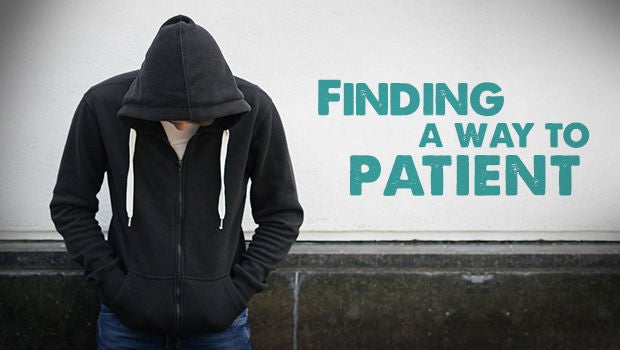
Photo : Freepik
Another lesson in doctor-patient communication by Anthony Li, Duke-NUS Year 3 Student as he realised the many missed opportunities to build good rapport with the patients we look after.
*Patient names have been altered for privacy
It was a quiet afternoon at Dr W's paediatric endocrine clinic. After running through the referral letter of the patient, Jonas*, with Dr W, I was introduced as the student doctor and was asked to take a complete history.
The patient was a 16 year-old young Chinese boy with a neat and tidy appearance. He is tanned, lean and well-built. I began the interview with an open question.
"Hi Jonas, How can I help you today?"
"I had gynaecomastia," replied the young boy. Enlargement of the breast tissue.
"So when was the first time you noticed the breast tissue?" I responded instinctively.
"It's not breast tissue. It's gynaecomastia," the boy quipped.
I quickly corrected myself, "Yes, gynaecomastia. When did you first notice the gynaecomastia?"
"Last year in December."
I have come to realise that having that mentality slowly began to hinder me from finding a way around the problem.
# # # # #
That was a rough start.

Reminding myself to be more sensitive to Jonas' concerns, I became aware of how I would feel if I were a teenager with gynaecomastia.
I would be rather frightened. Especially at the age of 16, when youths are most concerned about their looks, when they start having boy-girl relationships, and further explore their new found sexuality. Their peers can sometimes also be less than forgiving when it comes to teasing or making fun of one and another.
Many a times, I become so immersed in the process of asking questions and figuring out answers that I forget to put myself in my patients' shoes.
# # # # #
"How about your private parts? Did you notice any abnormalities since young or when you are born?"
This was a question to find out if a patient has any congenital genital abnormalities at birth.
"Not that I know of. However, I did have a similar experience when I was 12 years old. It went away after a while though," Jonas replied.
"Now you have it again, are you extremely concerned about these changes?"' I asked, trying to probe as much as possible since he seemed unwilling to elaborate on his answers.
"I was concerned and checked out some stuff over the internet. I think I might require an operation to remove the tissue. I also had a male friend who went for an operation to remove breast tissue…" his voice trailed off towards the end.
# # # # #
I did not manage to build rapport with Jonas as quickly as I wanted to. Many times, I felt that he did not feel comfortable discussing the details of his condition with me.
On too many occasions, medical students, like me, tend to think that it is difficult to build rapport because our patients consider us an untrained medical professional.
I have come to realise that having that mentality slowly began to hinder me from finding a way around the problem.
After much reflection, I felt that there were many missed opportunities for me to build rapport with Jonas. For one, I could have complemented him for knowing what "gynaecomastia" is and for looking up the facts on the internet.
Secondly, I could have felt more at ease connecting with him given that I am also a guy and that I had once experienced similar physiological changes.
I suppose the greatest point of discomfort with me not being able to build the rapport is this fear that I would not be able to secure the diagnosis as a result of a dysfunctional doctor-patient relationship.
After the interview and the physical examination, we concluded that Jonas' gynaecomastia was most likely caused by an exogenous source (essential oils).
Many a times, I become so immersed in the process of asking questions and figuring out answers that I forget to put myself in my patients' shoes.
However, it was a great lesson to me in particular. I learnt more about the nature of medicine, the assumptions that we made on a regular basis, and how to build good rapport with the patients we look after.
Anthony Li participates in the Duke-NUS's Hybrid Longitudinal Integrated Clerkship Programme, during which medical students undergo immersive learning in inpatient and outpatient settings, and gain integrated cross-disciplinary clinical experiences.













 Get it on Google Play
Get it on Google Play